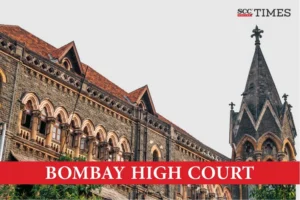Bombay High Court: In a writ petition filed against an order passed by the Sub-Divisional Officer, Koregaon, remanding the matter to the Mamlatdar without adjudication of the revision on merits, a Single Judge Bench of Amit Borkar, J., allowed the petition, holding that the Sub-Divisional Officer (‘SDO’) was under the legal duty to proceed with adjudication on available legal grounds instead of relegating the parties to a fresh round of proceedings without justification. Accordingly, the Court quashed the impugned order and restored the revision application for fresh adjudication by the SDO.
Background
A case was filed before the Mamlatdar under the Mamlatdar’s Courts Act, 1906 (‘the Act’) for the removal of obstruction under the Act. The Mamlatdar declined to grant relief to the petitioner primarily on the ground that the panchnama, a material piece of documentary evidence, was not properly drawn according to the procedural requirements.
Aggrieved, the petitioner filed a revision application before the SDO. The SDO concurred with the Mamlatdar holding that the panchnama was defective. However, instead of evaluating the legal effect and evidentiary value of the said panchnama in the context of the case and proceeding to adjudicate the revision on its own merits, the revisional authority remitted the matter back to the Mamlatdar, thereby deferring the adjudication.
Aggrieved, the petitioner filed the present case.
Analysis
The Court opined that this approach adopted by the SDO was legally unsustainable. The Court reiterated that an order of remand is not to be passed as a matter of routine, and certainly not merely to fill up lacunae in evidence or to re-do what has already been considered. A remand may be warranted only if the original authority has failed to consider a material document, the appreciation of which requires either a re-evaluation of evidence or permitting parties to lead fresh evidence. The Court stated that this is not the case here.
The Court stated that the revisional authority/SDO, having recorded a finding on the defectiveness of the panchnama, was under a legal duty to test the merits of the Mamlatdar’s order in the light of the other evidence on record, and determine whether the decision suffers from perversity or legal infirmity. Once the panchnama was found to be of doubtful evidentiary worth, the correct course would have been to proceed with adjudication on available legal grounds, and not to relegate the parties to a fresh round of proceedings without justification.
The Court remarked that the power of remand, when exercised in absence of compelling legal necessity, leads to avoidable delay in the resolution of disputes. Courts and quasi-judicial authorities are expected to avoid multiplicity of proceedings and ensure effective adjudication in the interest of justice. Remand should not be directed where the record is sufficient for final disposal and no prejudice is caused.
Thus, the Court held that the SDO erred in law in passing an order of remand. The error went to the root of the jurisdiction and required interference under Article 227 of the Constitution.
Accordingly, the Court quashed the impugned order and restored the revision application. The Court directed the SDO to decide the revision application on its own merits within six weeks, having due regard to the material produced before the Mamlatdar and the findings recorded therein.
[Kapil Satish Phalke v. Sub Divisional Officer, Koregaon, 2025 SCC OnLine Bom 1744, decided on 05-05-2025]
Advocates who appeared in this case :
For the petitioner: Dilip Bodake
For the respondent: AGP M. S. Srivastava and Shreyas P. Barsawade


